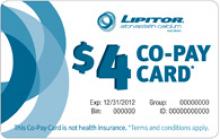On the heels of Wellpoint’s recent move to push branded Lipitor off its formulary, a new report shows that health plans overall continue to marginalize the branded cholesterol pill, making it more expensive for Pfizer to maintain a hold on the atorvastatin market.
A report being released Wednesday by Wolters Kluwer research group inThought shows the pharma giant saw rejected claims for branded Lipitor spike to 8% among managed care plans in December, just weeks after the blockbuster drug went generic. Consumers also abandoned their Lipitor prescriptions at the pharmacy counter, with 10% forsaking the branded drug when they were faced with a premium co-pay.

Pfizer has been attempting to woo consumers with a $4 Lipitor co-pay card in an attempt to retain market share. According to inThought analysts this has had an impact in that Lipitor has 41% of the total atorvastatin market (see above). InThought director of research Ben Weintraub said these tactics put Lipitor leaps and bounds ahead of other blockbusters that have recently gone off-patent, like Merck hypertension drug Cozaar and Pfizer/Esiai Alzheimer’s treatment Aricept.
But the drugmaker is seeing diminishing returns from this strategy, the report suggests, noting that the firm has held onto less than half the Lipitor pill count volume less than 10 weeks after the generic hit pharmacy shelves.
Lipitor is grabbing 35% of atorvastatin approvals among managed care plans, a volume that is lower than Lipitor’s current market share. At this rate, “The claims data suggests that Lipitor volumes will continue to decline.”
“Pfizer is well on the way to becoming the lead payer for branded Lipitor, meaning that even if it sells more pills, its profit-per-pill is declining significantly” Weintraub said in a statement. “The question is, ‘is it worth it?’”
Weintraub told MM&M that the brand’s true test will come in May, when the 180-day exclusivity period for making the generic expires. He said Pfizer’s current mix of co-pay cards and efforts to make backroom deals with payers is an attempt to prevent “20 other manufacturers from selling generic atorvastatin,” but that a slew of generics producers will likely knock back Pfizer’s atorvastatin share by 90%. What happens in May, then, will be the true bellweather of the brand’s lasting power, he said, as opposed to prescription migrations like WellPoint’s which goes into effect April 1.
“Is Pfizer going to go bankrupt?” he joked, then answered, “They’re going to be fine. They’ve seen the Lipitor patent cliff coming for years.”







